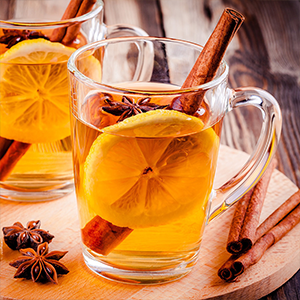Articles linking tea and hydration flood the world-wide-web these days. The findings that water and moderate tea consumption are equally hydrating are perhaps unsurprising. There have been various studies revealing that tea has no significant difference from water and it offers similar hydrating properties which is mainly due to its 99% water content.
Staying hydrated is important to stay healthy and for your body systems to function properly. It is an inevitable truth that water is essential for life. Throughout the centuries, man and other species thrived for life and a major key to survival has been the prevention of dehydration. Without water, humans can survive only for a few days, because water comprises between 57-60% of our body weight which is essential for cellular homeostasis.
This knowledge of using tea to boost hydration is due to the caffeine content of tea which has diuretic properties. A diuretic effect is the body’s response that stimulates the formation of urine.However, there are questions raised by tea drinkers looking for an explanation on the adverse effect of tea in promoting dehydration.

Hence, does tea really cause dehydration? The premise that tea is dehydrating is a myth. The Journal of the American College of Nutrition reported in their October 2000 publication about the effects of caffeinated and non-caffeinated beverages on hydration. Researchers found out that there were “no significant differences in the effect of hydration status between various types of beverages. The same is true with tea consumption; tea does not produce a diuretic effect unless the amount of tea consumed in one sitting has more than 300mg of caffeine which is equal to six or seven cups of tea.
If you are one of those people who doesn’t like the taste of plain water, don’t worry because tea is here for you! Here are some tea plus points for you to ponder. First, tea has more naturally added nutrients than water. Experts believe that flavonoids and polyphenol antioxidants are the key ingredients in tea that promote health. Secondly, when the plain taste of water seems quite boring, try a flavourful cup of tea instead.
So, if you like inspiration to stay hydrated with a twist of exciting flavours to make your taste buds happy, take that sip of tea at any time of the day.

“The Importance of Staying Hydrated” (2015). Harvard Health Publications – Harvard Medical School. (Retrieved 01 March 2017) from http://www.health.harvard.edu/staying-healthy/the-importance-of-staying-hydrated Helmenstine, A.M., Ph.D. (2017). How much of your Body is Water? About Education [web post]. (Retrieved 28 February 2017) from http://chemistry.about.com/b/2014/01/29/how-much-water-is-in-the-human-body.htm Khurshid, Z., Zafar, M.S., Zohaib, S., Najeeb, S., & Naseem, M. (2016). Green Tea (Camellia Sinensis): Chemistry and Oral Health. The Open Dentistry Journal, 2016(10). pp. 166-73. (Retrieved 28 February 2017). doi: 10.2174/1874210601610010166
Popkin, B. M., D’Anci, K. E., & Rosenberg, I. H. (2010). Water, Hydration and Health. Nutrition Reviews, 68(8), 439–458. (Retrieved 28 February 2017). http://doi.org/10.1111/j.1753-4887.2010.00304.x
Ruxton, C.H. & Hart, V.A. (2011). Black tea is not significantly different from water in the maintenance of normal hydration in human subjects: results from a randomised controlled trial. The British Journal of Nutrition, 106(4). 588-95. (Retrieved 28 February 2017). doi: 10.1017/S0007114511000456.
